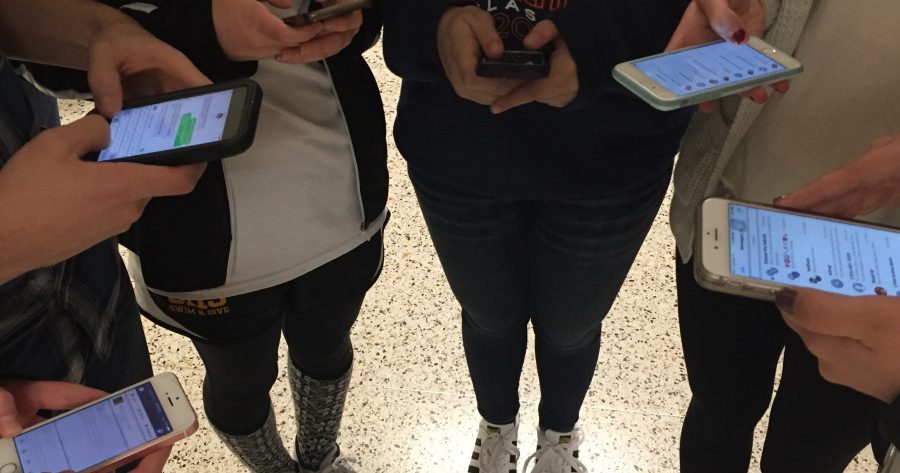How millennials are reshaping the world
The millennial generation is the quickest expanding and most talked-about generation in history. Millennials have been shaking various social standards and economic trends more so than any other generation in history. Although many diverse definitions of millennials exist, most agree that millennials are those born between 1988-2000, with similar traits bleeding into the very early 2000’s, with some of these later millennials being referred to as ‘post-millennials’. Because this generation has been raised in a very different way than those prior, they have brought a whole new spin to the growing world.
Social
Diversity and acceptance have been a growing trend in recent years and many millennials have been raised in much more diverse environments than those before. One of the largest differences is the large rise in ethnic diversity in the millennial generation. There are far more people who do not identify as caucasian, such as Hispanics, Asians, American indians, and African Americans, than there were in all past generations. In fact, white people are soon to be outnumbered by minority groups in the United States. According to an analysis by Brookings Institution, 75% of the 55+ age group is caucasian, whereas only 55.8% of the 18-34 age group is caucasian.
Millennials have also trended towards a deeper acceptance of LGBTQ+ community. Various polls and surveys have shown a rise in support of the LGBTQ+ community, so much that in recent years same sex marriage laws have been passed throughout the country and much of the population has been pushing for new systems and laws to be more inclusive of the transgender community. Acceptance is seen as the new way of the future and with millennials strongly pushing towards it, even more improvements are likely to come.
Physically
Fitness and health have become much more important to this generation-on-the-rise. This group favors walkable cities and organic foods more than their less healthy counterparts. This change is partly due to the new importance of social media in people’s everyday lives. Social media is overflowing with videos and tips about eating healthy and getting exercise that are spreading all around the world. This rise in social media makes millennials more inclined to compare their fitness with others or share their personal progress, which furthermore motivates them to get fit like the people they admire on the internet. The internet also gives younger people ideas on ways to exercise or eat. Other forms of technology have also increased healthy motivations, like apps to track exercise and eating such as Popsugar or Fitstar. The Fitbit, a wireless bracelet that tracks steps and movement, has become a very popular way of tracking fitness as well.
Exercise apparel has become more popular among the millennial generation as well. Brands like Nike, Under Armour, and Lulu Lemon have been on the rise, allowing people to look fit and feel comfy in their busy lives. This casual athletic style is more acceptable now than ever, especially the very popular yoga pants. The athletic apparel industry has experienced massive increases in revenue and popularity in recent years and even raised 8% in just 2013.
Consumerism
Millennials have shaken just about every pre-existing aspect of consumerism. Ever since the creation of online shopping, it has become more and more popular and many prefer shopping via the internet rather than in stores. Brands have become less attractive to younger consumers, who now focus more on quality rather than price or brand. Additionally, comparing prices has become a much more important practice for the millennial generation in order for them to get a larger ‘bang for their buck.’ This is changing the way popular or more luxurious brands are selling their merchandise since more people are not willing to pay high prices. Companies will also have to alter their marketing strategies to not only appeal to the wants of the new generation but also shift towards a larger internet presence with the increase in social media and online shopping.
Ownership trends are also changing massively among this group. Few millennials are interested in actually owning major purchases like a car. Instead, they are more interested in partial ownership or access. This is why companies like Netflix, Spotify, and Uber are becoming much more popular, because they allow buyers to have access to certain products or services without fully buying and owning them.
Education
Millennials are also more interested in receiving a higher education than previous generations. Not only are more millennials attending college, but more are also going on to receive master’s degrees or higher. The main reason for this is the large increase of potential pay that tends to come with having a master’s degree. More women are also becoming educated, sometimes even more than men, as opposed to all previous generations where men had a clear advantage in education. Online degrees are also growing in popularity along with the internet. Some millennials are finding these degrees to be worth more time and money than the typical approach to college or need a college that fits their busy schedule.




